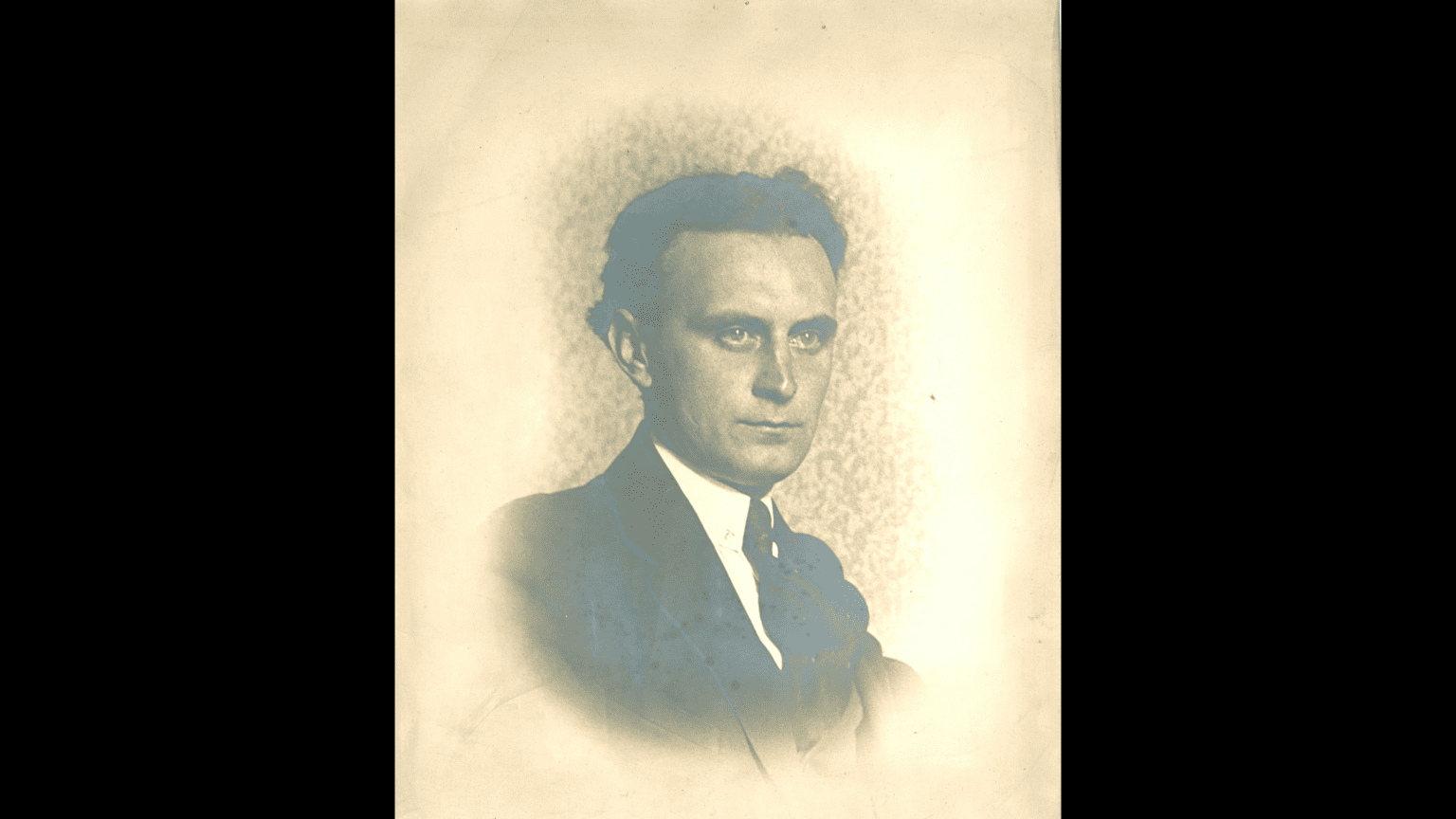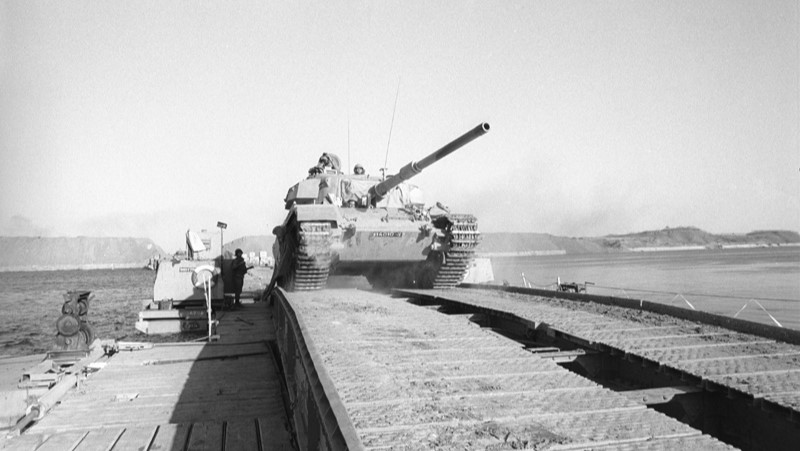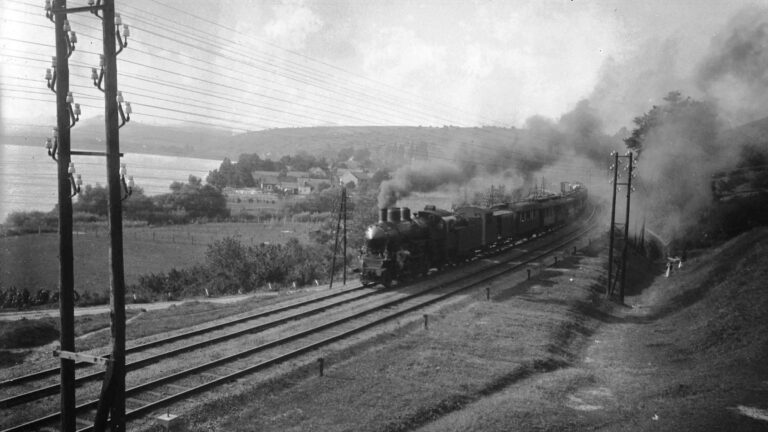Those interested in the history of the early twenties in Hungary will recognise the name of István Lendvai: one of the most infamous far-right writers of his time, he was a regular denigrator of Hungarian Jewry in the press.[1] Few know, however, that he spent his final years not battling Jews, but the Nazis, and most likely ended his life as an anti-Nazi resistance fighter, like his well-known friend, Endre Bajcsy-Zsilinszky.
While the memory of Bajcsy-Zsilinszky–after some convenient distortions–was appropriated by Socialist historiography, the legacy of Lendvai was erased. Whether this was good or bad for Lendvai is a difficult question. There is no doubt that Lendvai’s early activities were characterized by extreme antisemitism, however, his lifework cannot be fairly evaluated without analysing his anti-Arrow Cross articles. A separate problem is that while Lendvai made a point of having his racist speeches and articles published, only a short selection of his anti-Nazi and anti-Arrow Cross pieces written under the pseudonym Nomád (Nomad)[2] were collected. His articles written between the fall of 1942 and the spring of ’44 (the German occupation of Hungary) remain largely undiscovered.
Although it is by no means possible to draw a straight line between the racialist-nationalists of the twenties and the National Socialists and Arrow Crosses of the 30s and 40s, it is still an important question: at which point did Lendvai begin to be critical of his former radical right-wing convictions? While in the case of other, formerly radical right-wing writers and public figures this period is the beginning of the twenties, in the case of Lendvai, signs of a change of heart can be first found only at the very end of the twenties (which is understandable, since he was a member of parliament with a racialist programme from 1923 to 1926). Moreover, in the case of Bajcsy-Zsilinszky, it is an accepted proposition that he also espoused anti-Nazi views because of his anti-German (that is, being against people of German ancestry) feelings; however, Lendvai, born originally as Lehner, was of Austrian origin, and his writings and poems reveal a deep inner conflict regarding his Germanic ancestry.
His articles critiqued, ridiculed and humiliated the far-right, often in a highly sarcastic tone
It was after 1936 that Lendvai started using his new pseudonym, which did not refer to the nomadic traditions of ancient Hungarians, but rather to the fact that he was regularly forced to change jobs, going from newspaper to newspaper, almost like an intellectual “nomad”.[3] His articles critiqued, ridiculed and humiliated the far-right, often in a highly sarcastic tone. In one article, he described the Arrow Cross Party members as a marching, arm-waving lot, aping the Germans, false patriots who deny the right of small nations to exist, and deny the heritage of King St. Stephen and Lajos Kossuth. As he wrote, reading the ‘dirty pages’ in the Arrow Cross press, after each line he had to blurt out: ‘What is this, what is this?!’ According to Lendvai, the Arrow Cross journalists were ‘psychopaths’ who ‘mimicked the former revolutionary [communist] press with unprecedented perfection’ in ‘corrupting the souls of the masses’ with their ‘cultural bolshevism’.[4]
This understandably angered the Arrow Cross, a loyal sub-group of which, called the Invisible Front, started sending threatening letters to Lendvai as early as the summer of 1937. ‘We don’t know who you are, are you a Jew or a non-Jew?’ the first letter began. ‘However, we see from your conduct and articles that […] you serve Jewish interests.’ In a subsequent letter, they apologized to Lendvai in a rather comical way for calling him a Jew (‘Judging by your author’s name, we couldn’t tell who you were. Now we know that you are not Jewish, so don’t be angry with us…’). In another letter, sent a few months later, they solved the conundrum by labelling him a ‘mercenary on Jewish payroll’.[5] The threats later turned violent: he was threatened with ‘execution,’ with ‘erasing his memory,’ he was called an ‘English spy’ and ‘a deranged, stupid, vile Jewish mercenary.’ Finally, on the evening of 28 December 1939, near the Déli railway station of Budapest, a former wrestler hired by Arrow Cross politician Lajos Gruber attacked István Lendvai; the writer lost consciousness as a result of the beating.[6]
By this time, Lendvai strongly identified as a democrat, calling the ideal of a totalitarian world order ‘nightmarish’.[7]His arguments, however, did not lose their patriotic undertone: ‘Our Hungarian national character includes our love for liberty’,[8] he said in an article. Many of his op-eds employed the argument of sheltering Hungarian national sovereignty: ‘When the world crumbles, we must be pro-Hungarian, only looking at the fair interests of the Hungarian nation […] and must not bow before foreign interests…’ – he wrote not long before the German occupation of the country.[9] This was combined with a Christian worldview. In another article, he explained that by democratic values, he meant a ‘higher sphere’, the ‘true nature’ of these values, ‘a Europe living in the spirit of neighbourly love, fertile humanism and legitimate nationalism.’[10] Of course, nationalist references also abounded on the pro-Nazi side, and so Lendvai took great pains to emphasize that only the anti-Nazi right could legitimately quote the grand Hungarians of old. An Arrow Cross using the names of Ferenc Deák or Kossuth were, to him, like ‘flies on the statute of Apollo’ – and he likened himself to the curator who would clean the statues of such ‘nameless’ bugs.[11]
Lendvai was never a capitalist, and throughout his career remained a harsh critic of the free market. In January 1944, he explained that ‘a man sensitive to social issues can never stand for “free competition”, which is unjustly called “free”, as in reality it is the rampage of the strong and cruel against the weak. […] Capital can never liberate labour’.[12] On the other hand, Lendvai never argued for the Soviet model, and instead wanted to see something like Salazar’s Portugal implemented in Hungary after the war, at least in economic terms.
Above all, Lendvai valued human conscience and free will. This he summarised in one of his most brilliant and entertaining articles, titled ‘A dog called Bill and the ideal of liberty.’ The article was about Bill, the dog, who lived in a street not far from Lendvai’s own house in Budapest. Bill was famous for his habit of running away from home, and whenever he saw Lendvai approaching, the dog would squeeze under the fence and tag along for a while, ‘clearly in order to fully experience his existence as a dog’. During these walks Lendvai would talk to Bill: ‘You were not born a genius, but obviously in your own doggish way, you know that the world and your life wouldn’t be worth anything without liberty, which of course cannot be limitless. But if you cannot even have the liberty to run around for your own entertainment a little bit, and were forced to sit in one place, and the two-legged were to tell you constantly what to do and how to live, then not even a dog would be happy with this life. […] What do you make of it, Bill, that nowadays those who hate liberty, dare attack [the great Hungarians] István Széchenyi, Lajos Kossuth and Ferenc Deák? […] These men don’t want to see the smallest bit of freedom, and call for “more barbed wires” and are enthusiastic – enthusiastic, can you believe that? – about the destruction of all individual liberty’.
Although Bill ‘did not care at all about’ his questions, it the dog never left his side. ‘I could not chase him away even if I wanted to. Even though I never gave him any food or treats and never told him nice things […] Others love him more and treat him better, they call to him on the street, but Bill never leaves my side. Apparently, he chose me as his leader, cast his independent vote for me out of his own conviction. I never bought him, I never promised him ham, sausage, or bacon, but also never forced him to join me, never sent brutes to “convince” him through intimidation.’ Yet even the dog knew that ‘if I were to treat him badly, he would leave. He certainly did not choose me so that only I could order him around and he would obey, and so that even if I were to kick him to death, he would raise his paw and with his last breath yell: “Never give up! Long live Nomád!” [The slogan of the Arrow Cross was: ‘Never give up! Long live Szálasi!’ – ed.] For that sort of stupidity, one has to be two-legged,’ Lendvai concluded.[13]
Lendvai proposed a radical set of actions against the Arrow Cross: he wanted to see their party banned, their editorial offices closed, their politicians imprisoned, and when one Arrow Cross leader suggested that Jews should be forced to wear the yellow star, Lendvai replied in an article that it is the pro-Nazis who should be forced to wear a stigmatising badge.[14] The ex-radical journalist and poet was by this time unambiguously labelled “left-wing” – not only in Arrow Cross papers, but also in conservative journals that sympathized with him.[15] But Lendvai hardly had a problem with this definition, as he explained that what was called the “right” at that time–in his opinion, bolshevism dressed in national colours–no longer described his worldview.[16] As he noted in a letter to László Budaváry–a politician who went through a similar, albeit less radical change– ‘if [what the Arrow Cross Party] is doing is called right-wing…then I am not, have never been, and will never be right-wing, let alone far-right.’ [17] In another article written for Magyar Nemzet, he even wrote that if the terms “patriot” and “good Hungarian” meant ‘ideological prostitution’, then he won’t use those expressions to describe himself either.[18]
He always stood up for the oppressed and against the oppressors
The question arises whether Lendvai ever self-identified as left-wing. When a pro-Arrow Cross journal deemed him a Marxist, he rejected the label, but went on to explain that whatever is thought of the left, ‘nowadays the world has changed, other people are in power, other dangers threaten Christian morality, the thousand-year-old Hungarian state and nation, and these threats are even graver, as they hide behind Christian and national slogans.’ Lendvai claimed that his views never changed: he always stood up for the oppressed and against the oppressors. This meant that now he was on the side of the Social Democrat paper Népszava, and this was ‘only natural’, Lendavai said, as ‘we serve Christian humanitarianism and national interests together, and neither of us want to hand over Hungary to radicals. This is no reason to feel ashamed, neither for me, nor for Népszava...’[19]
In August 1943, he even wrote an article about a Social Democrat pamphlet, and his article was titled ‘We are talking about the same thing’. In the article, he proposed an ‘alliance’ with the ‘organised working class’ – a codeword for Social Democracy.[20] Apparently, it never crossed Lendvai’s mind that the Communists might try to take over the county again: ‘It is unimaginable that a situation similar to what happened 25 years ago could occur again.’[21] In one of his final article, published less than a month before the German occupation of Hungary, Lendvai even wrote: ‘If [my enemies] want to label me left-wing…then so be it: I’ll try and deal with it somehow.’[22] All of this does not mean that Lendvai became a philosemite – in fact, in a 1939 article, he explained that ‘just because I do not howl with the wolves of today’, ‘my opinion about Jews has not changed much.’[23] He merely stated that he did not support the so-called Third Jewish Law of 1941 and that ‘in a free country’ race ‘cannot be the basis of civil rights.’[24]
Lendvai went into hiding in the countryside after the German occupation of Hungary, but on 18 July 1944, local Arrow Cross men captured him and dragged him to Tapolca, Zalaegerszeg, and finally to Szombathely. He died there in early 1945. His wife was told that he had been released, but he never got home, and his body was never found. Releasing prisoners and then shooting them in the back was a well-known method of the Arrow Cross; it is more than likely that Lendvai suffered the same fate. Eyewitnesses told the family that Lendvai was shot in the street, not far from the Arrow Cross prison.[25] The once radical right-wing poet and journalist, who in the early 20s was one of the chief antisemites in Hungary, sacrificed his life for the anti-Nazi resistance a quarter of a century later. In the end, Lendvai lived up to his poem, written in 1941, titled Letter to Caesar (a name exclusively used for Hitler in his writings): ‘If your steps marched in my street / […] and no one was there to protect me / Caesar, even then I wouldn’t serve you / […] and if the hour came […] / and you’d send me to the gallows / a place familiar to Christians / I’d tell you even there / Caesar, you cannot have my soul. / It is an old lesson, / but your mind is feeble to learn it / […] / The body can bend under force, / but not even blood and iron / can conquer souls.’[26]
[1] László Bernát Veszprémy, ‘Father Béla Bangha’s “Jewish Summer” – A Story on the Conflict Between Catholicism and Racism’, (24 June 2022), Hungarian Conservative, https://www.hungarianconservative.com/articles/culture-society/father-bela-banghas-jewish-summer-a-story-on-the-conflict-between-catholicism-and-racism/, accessed 2 Aug. 2022.
[2] Lendvai István, ‘Nomád leveleiből’, Budapest, Linea, 1942. The full book can be downloaded here: http://mtdaportal.extra.hu/books/lendvai_istvan_nomad_leveleibol.pdf
[3] Lendvai explains this in his foreword to his own book ‘Nomád leveleiből’, pp. 4-5.
[4] ‘Nomád levele egy pálfordulásról’, Mai Nap, 10 Aug. 1943, p. 2.; Nomád leveleiből, pp. 6., 83.; Lendvai István, ‘Hírbe hoztak a Népszavánál,’ Mai Nap, 9 June 1943, pp. 1-2.; Lendvai István, ‘El a ponyvával, de – mindegyikkel!’, Szabadság, 1 May 1942, p. 3.
[5] For the letters, see the personal papers of István Lendvai (hereon cited as PPIL). See also: Budavári László, Zöld bolsevizmus. A nemzetietlen nyilas-mozgalom hűséges és döbbenetes képe, Budapest, Nemzeti Élet, 1941, pp. 59-60.; ‘Nomád levele egy pálfordulásról’, p. 2.; ’Nomád leveleiből’, p. 6.
[6] ’Nomád leveleiből’, p. 6., pp. 78-79.; Ungváry Krisztián, ‘Kik azok a nyilasok?’, Beszélő, 2003/6.
[7] ‘Lendvai István krónikája’, Mai Nap, 26 Feb. 1944, p. 3.
[8] ‘Lendvai István krónikája’, Mai Nap, 6 March 1944, p. 2.
[9] Lendvai István, ‘Legyünk magyarpártiak!’, Mai Nap, 18 Feb. 1944, p. 1.
[10] Lendvai István, ‘Világmentő kereszténység’, Szabadság, 25 Sept. 1942, p. 3.
[11] Lendvai István, ‘Apollo szobra és a légy’, Mai Nap, 10 Feb. 1944, p. 1.
[12] Lendvai István, ‘Társadalmi összhang’, Mai Nap, 28 Jan 1944, p. 1.
[13] Lendvai István, ‘Bill kutya – és a szabadságeszme…’, Szabadság, 23 Oct. 1942, p. 2.
[14] Lendvai István, ‘Akik nem ünnepelnek’, Szabadság, 20 March 1942, p. 3.; Lendvai István, ‘El a ponyvával, de – mindegyikkel!’; Lendvai István, ’Közéleti ájtatoskodók’, Szabadság, 1 May 1942, p. 3.; Lendvai István, ‘A békebontók, Szabadság, 11 Dec. 1942, p. 1.
[15] ‘Lendvai István pellengéren’, Nemzeti Élet, 12 May 1940, p. 4.
[16] ‘Nomád levele’, Mai Nap, 2 Jan. 1944, p. 1.
[17] ‘Zöld bolsevizmus’, p. 62. See also: ‘Nomád leveleiből’, pp. 13-14.
[18] Lendvai István, ‘Hazafiság’, Magyar Nemzet, 21 Feb. 1943, p. 11.
[19]‘Hírbe hoztak a Népszavánál’
[20] Lendvai István, ‘Ezt mondjuk mi is’, Mai Nap, 3 Aug. 1943, p. 1.
[21] For these arguments see: ‘Ezt mondjuk mi is’; Lendvai István, ‘Fölösleges aggodalmak’, Mai Nap, 7 Aug. 1943, p. 1.; Lendvai István, ‘A nemzet és a munkásság’, Szabadság, 9 Jan. 1942, p. 1.
[22] Lendvai István, ‘Helyeslés a baloldalon’, Mai Nap, 23 Feb. 1944, p. 1.
[23] PPIL, Nomád: ‘Földkérdés, zsidókérdés, nyilaskérdés’, 6 Dec. 1939.
[24] ‘A békebontók’; Lendvai István, ‘Szabad nemzet, szabad polgárság’, Szabadság, 18 Dec. 1942, p. 1.
[25] Author’s interview with the daughter of István Lendvai, 14 June 2015.
[26] PPIL, Lendvai István, ‘Levelek a cézárhoz, I.’, 1941.








